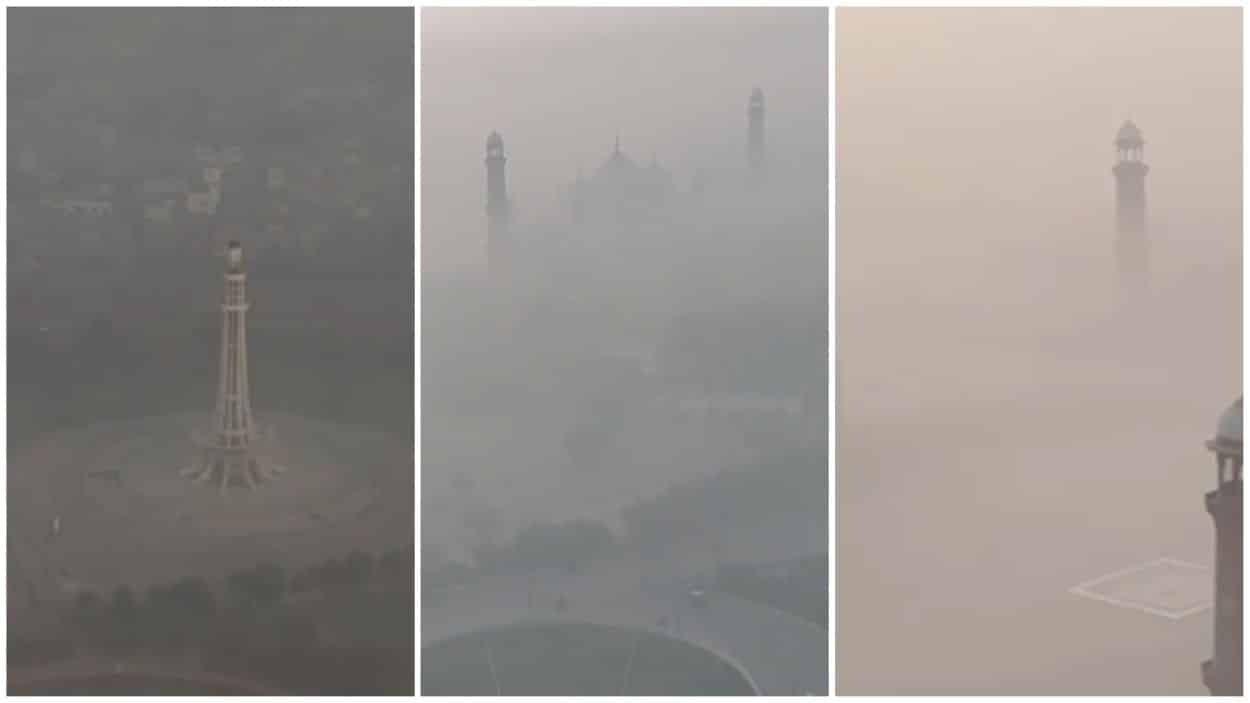The Punjab government, complying with a Lahore High Court directive, banned most outdoor activities and restricted the retail sector in four major districts due to persistent hazardous smog.
The provincial government mandated that all retail businesses in Lahore, Faisalabad, Multan, and Gujranwala close by 8 pm; however, it exempts pharmacies, laboratories, vaccination centres, and other essential services.
A notification clarified that essential services, including medical stores, oil depots, bakeries, and grocery stores, could remain open past the closure time. It specified that large departmental stores could only operate their grocery and pharmacy sections beyond the stipulated hours. Additionally, the government prohibited all outdoor sports, exhibitions, and public gatherings after 8 p.m.
Read: Smog Crisis Worsens: Multan Joins Lahore in Facing Severe Air Quality Decline
Police have received orders to strictly enforce these measures to mitigate air pollution in the affected cities. Violations of these restrictions will face strict action. “Wedding halls, shops, and business centres must shut by 8 pm,” a senior police officer stated, noting the collaboration between law enforcement, the environment protection department, and district administrations to ensure adherence.
The “green lockdown” is part of efforts to combat critical pollution levels in Lahore, which suffers from severe smog. Lahore’s air quality index (AQI) far exceeds the World Health Organization’s safe limits, reaching an average of 588 and peaking at 1,900 earlier in the month.
The primary pollutant, PM2.5, consists of fine particles harmful to human health, capable of penetrating deep into the lungs and bloodstream. In response to these hazardous conditions, residents are advised to limit outdoor activities, use air purifiers, and wear masks.
These new restrictions will remain effective until November 17, responding to the rise in respiratory diseases and eye irritations in the affected districts. The government has also closed educational and public spaces to protect public health, as recommended by experts and international health bodies like UNICEF, which has called for increased efforts to safeguard children’s health in Punjab.






